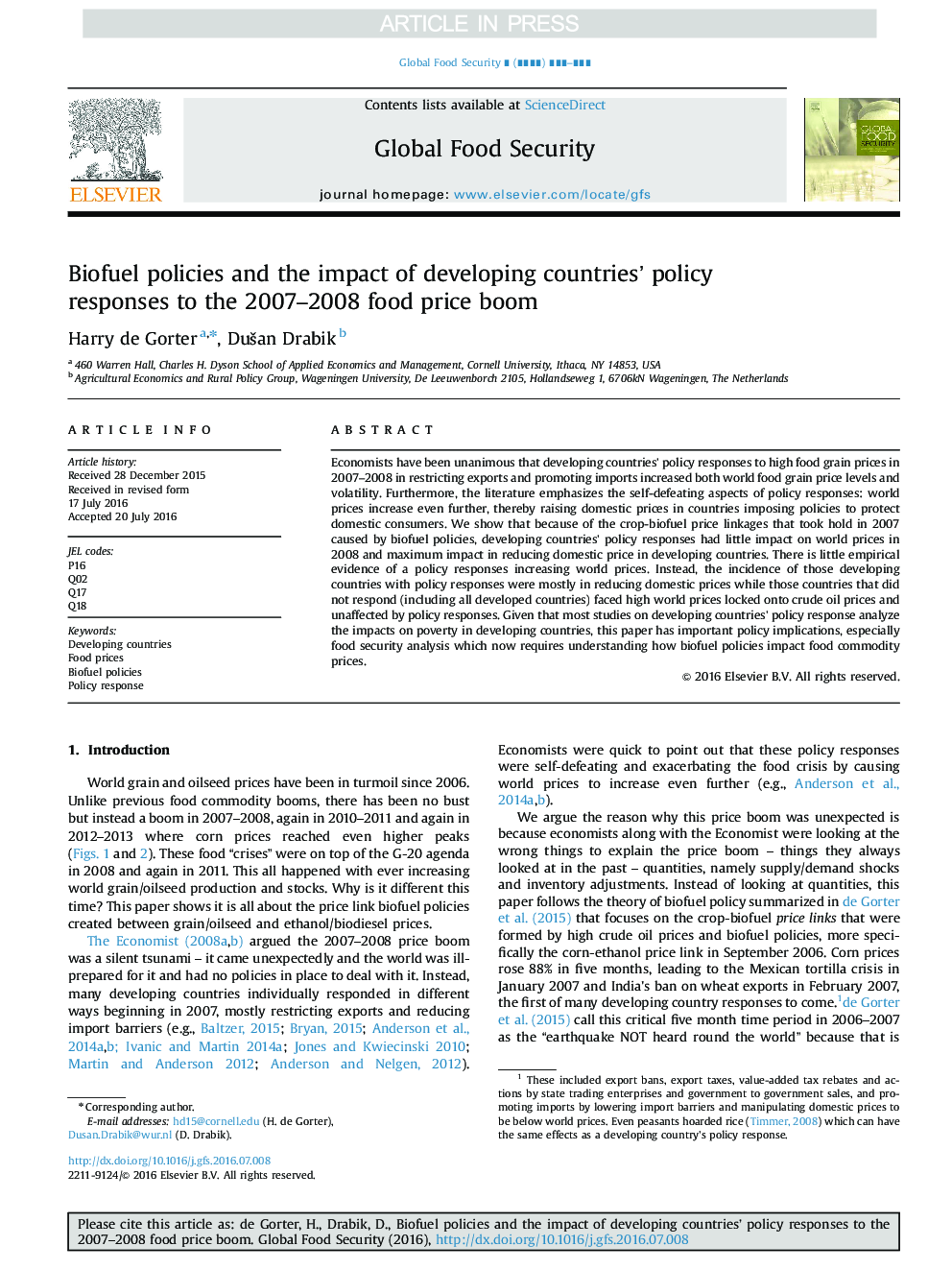| Article ID | Journal | Published Year | Pages | File Type |
|---|---|---|---|---|
| 5114562 | Global Food Security | 2016 | 8 Pages |
Abstract
Economists have been unanimous that developing countries' policy responses to high food grain prices in 2007-2008 in restricting exports and promoting imports increased both world food grain price levels and volatility. Furthermore, the literature emphasizes the self-defeating aspects of policy responses: world prices increase even further, thereby raising domestic prices in countries imposing policies to protect domestic consumers. We show that because of the crop-biofuel price linkages that took hold in 2007 caused by biofuel policies, developing countries' policy responses had little impact on world prices in 2008 and maximum impact in reducing domestic price in developing countries. There is little empirical evidence of a policy responses increasing world prices. Instead, the incidence of those developing countries with policy responses were mostly in reducing domestic prices while those countries that did not respond (including all developed countries) faced high world prices locked onto crude oil prices and unaffected by policy responses. Given that most studies on developing countries' policy response analyze the impacts on poverty in developing countries, this paper has important policy implications, especially food security analysis which now requires understanding how biofuel policies impact food commodity prices.
Related Topics
Life Sciences
Agricultural and Biological Sciences
Agronomy and Crop Science
Authors
Harry de Gorter, Dušan Drabik,
